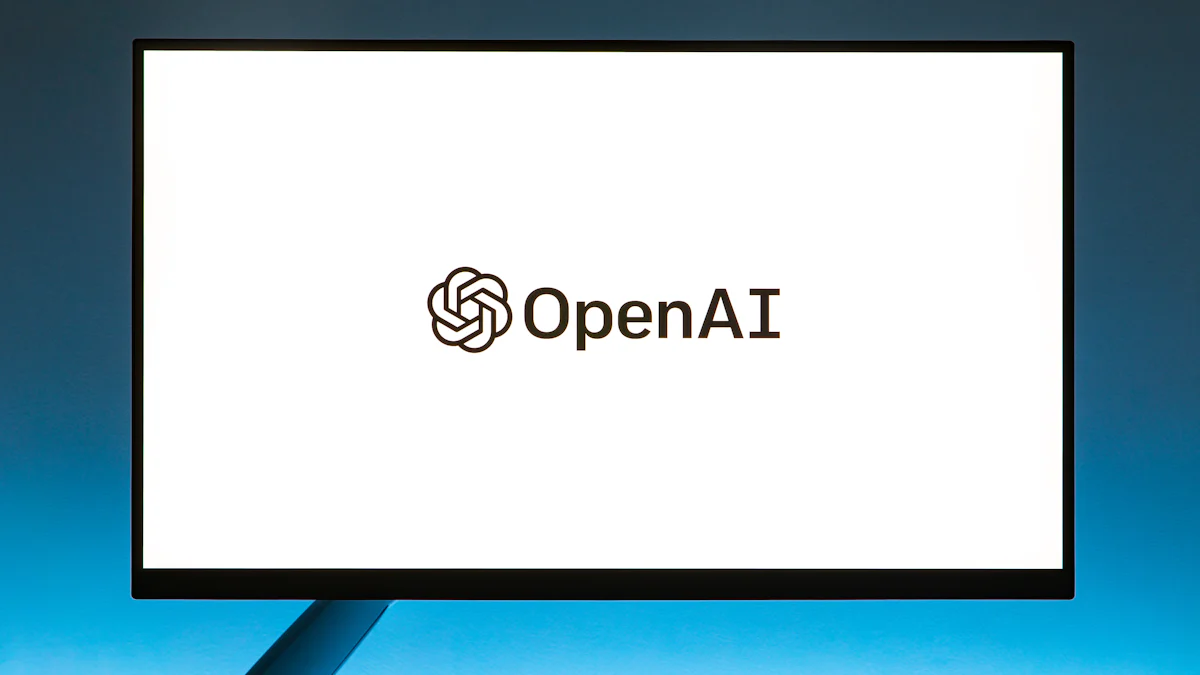SEO in 2025: The AI Revolution

Artificial intelligence (AI) is set to revolutionize SEO practices by 2025. Businesses are already witnessing significant improvements in their digital marketing strategies. For instance, 65% of companies have reported better SEO results with AI integration. This transformation is not just about efficiency; it also enhances personalization and effectiveness. AI tools like Jasper and ChatGPT are advancing rapidly, producing sophisticated content that aligns with emerging SEO trends 2025. However, the balance between AI capabilities and human creativity remains crucial. Tools such as AI Blog Writer exemplify this synergy, offering innovative solutions while preserving the human touch.
The Current Role of AI in SEO
Transformative Impact of AI
AI has become a cornerstone in the realm of SEO, offering transformative capabilities that enhance various aspects of digital marketing. Rachel S, an expert in SEO at Merchynt, emphasizes that using AI for SEO is not merely a trend but a practical approach to understanding search engine requirements. AI-powered tools currently play a significant role in streamlining SEO tasks. They assist in analyzing vast datasets, predicting trends, and optimizing content for improved performance.
AI tools have revolutionized keyword research and content optimization. They analyze search patterns and user behavior to identify high-impact keywords, ensuring content aligns with user intent. These tools also automate content optimization by suggesting improvements in structure, readability, and relevance. This automation allows marketers to focus on strategic initiatives rather than repetitive tasks.
Tools like Prompt vibes offer tailored prompts that help SEO specialists create more focused and intent-driven content, optimizing engagement through precise keyword alignment.
Enhancements in keyword research and content optimization
AI enhances keyword research by providing insights into trending topics and search queries. It identifies long-tail keywords that might otherwise go unnoticed, offering a competitive edge. In content optimization, AI tools evaluate existing content against SEO best practices, recommending adjustments to improve search rankings. This results in more targeted and effective content strategies.
AI Tools in Use Today
The integration of AI tools in SEO strategies has become increasingly common. These tools not only automate routine tasks but also provide valuable insights that shape marketing strategies.
Examples of popular AI tools in SEO
Several AI tools have gained popularity among SEO professionals. Tools like Jasper and ChatGPT generate high-quality content that resonates with target audiences. They leverage natural language processing to create engaging and relevant content. Other tools, such as SEMrush and Ahrefs, utilize AI to offer comprehensive SEO analysis and recommendations.
How these tools are changing SEO strategies
AI tools are reshaping SEO strategies by enabling more precise targeting and personalization. They allow businesses to tailor content to specific audience segments, enhancing user engagement and satisfaction. By automating data analysis, these tools provide actionable insights that inform decision-making and strategy development. As a result, businesses can achieve better SEO outcomes with less manual effort.
Limitations of AI in SEO
The Irreplaceable Human Element
The role of creativity in content creation
AI tools can automate many SEO tasks, but they cannot replicate AI tools can automate human creativity. Humans possess the unique ability to craft engaging narratives and compelling stories. This creativity plays a vital role in content creation. It helps capture the audience's attention and keeps them engaged. While AI can generate content based on data, it lacks the emotional depth and originality that humans bring to the table.
Strategic thinking and human intuition
Strategic thinking and intuition are essential components of effective SEO. Humans can analyze complex situations and make informed decisions. They understand the nuances of their target audience and can tailor strategies accordingly. AI tools provide valuable data and insights, but they cannot replace human expertise. A balanced combination of AI tools and human involvement ensures the most effective SEO outcomes.
Challenges Faced by AI
Understanding context and nuance
AI struggles with understanding context and nuance. It processes information based on algorithms and patterns, which can lead to misinterpretations. For example, AI might not grasp the subtle differences in language or cultural references. This limitation can affect the quality of content and its relevance to the audience. Human oversight is necessary to ensure that content aligns with the intended message and context.
The need for human oversight in AI-driven processes
AI-driven processes require AI-driven processes require human oversight to maintain quality and accuracy. Humans can identify errors and make necessary adjustments. They ensure that AI-generated content meets the desired standards and objectives. Without human intervention, AI tools might produce content that lacks coherence or fails to resonate with the audience. Therefore, human involvement remains crucial in AI-driven SEO strategies.
The Partnership Between AI and Human Expertise

Enhancing Human Roles with AI
AI as a tool for augmenting human capabilities
AI tools provide insights that help marketers tailor their strategies to meet specific audience needs. This collaboration between AI and humans results in more effective SEO outcomes.
Case studies of successful AI-human collaboration
Several case studies highlight the success of AI-human collaboration in SEO. For instance, a digital marketing agency used AI tools to automate keyword research and content optimization. This allowed their team to concentrate on crafting engaging narratives and developing innovative strategies. As a result, the agency achieved a 30% increase in organic traffic within six months. Another example involves a retail company that integrated AI-driven predictive analytics into their SEO strategy. This enabled them to anticipate market trends and adjust their content accordingly, leading to a significant boost in search rankings.
Balancing AI and Human Creativity
Strategies for integrating AI without losing the human touch
Integrating AI into SEO strategies requires careful planning to maintain the human touch. One effective strategy involves using AI for data-driven tasks while relying on human expertise for creative aspects. Marketers can use AI tools to gather insights and identify opportunities, then apply their creativity to develop unique content that resonates with audiences. Regular collaboration between AI and human teams ensures that both perspectives are considered in decision-making processes. This balance helps preserve the authenticity and emotional depth of content.
The importance of maintaining a creative edge
Maintaining a creative edge is crucial in the evolving landscape of SEO. While AI excels at processing data and optimizing content, it cannot replicate human creativity. Humans possess the ability to craft compelling stories and connect with audiences on an emotional level. This creativity differentiates brands and captures the attention of users. By combining AI's analytical capabilities with human creativity, businesses can create content that stands out in a crowded digital space. This approach not only enhances user engagement but also strengthens brand identity.
AI Technologies Shaping SEO in 2025
Predictive Analytics
Predictive analytics is transforming the landscape of SEO by offering businesses the ability to anticipate future trends and user behaviors. This technology leverages historical data to forecast changes, enabling marketers to craft more effective strategies.
Benefits of predictive analytics in SEO
Enhanced Targeting: Predictive analytics allows businesses to identify and focus on high-impact keywords and content topics. By analyzing search patterns, companies can tailor their content to meet user intent more accurately.
Increased ROI: By aligning SEO strategies with anticipated trends, businesses can optimize their resources and achieve better returns on investment. Predictive analytics helps in prioritizing efforts that yield the highest impact.
Adaptability: As search engine algorithms evolve, predictive analytics provides the flexibility needed to adapt quickly. This adaptability ensures that SEO strategies remain relevant and effective over time.
Applications in forecasting trends and user behavior
Predictive analytics plays a crucial role in understanding user behavior and forecasting trends. By examining vast datasets, businesses can identify emerging patterns and adjust their strategies accordingly. For instance, predictive analytics can reveal shifts in consumer preferences, allowing marketers to create content that resonates with their audience. This proactive approach not only enhances user engagement but also improves search rankings.
Machine Learning
Machine learning is revolutionizing SEO by transforming search algorithms and enhancing personalization. This technology enables search engines to deliver more relevant and personalized results to users.
How machine learning is transforming search algorithms
Machine learning algorithms analyze a wide range of information to improve search accuracy and efficiency. These algorithms learn from user interactions and continuously refine their understanding of search queries. As a result, search engines can provide more precise and contextually relevant results. This transformation empowers businesses to optimize their content for better visibility and engagement.
The role of machine learning in personalization and user experience
Machine learning enhances personalization by tailoring search results to individual user preferences. By analyzing user behavior, machine learning algorithms can predict what content will be most relevant to each user. This personalization improves the overall user experience, leading to higher satisfaction and engagement. Businesses that leverage machine learning can create content that aligns with user expectations, ultimately boosting their SEO performance.
SEO Trends 2025
QuickCreator's Role in SEO Trends 2025
How QuickCreator's AI Blog Writer enhances SEO strategies
QuickCreator's AI Blog Writer plays a pivotal role in shaping SEO trends 2025. This innovative tool empowers businesses to create engaging, SEO-optimized content that aligns with Google's ranking factors. By eliminating the need for expensive content creation and SEO teams, it offers significant cost savings. The AI Blog Writer automates the content creation process, ensuring that the output is not only relevant but also resonates with the target audience. This automation allows businesses to focus on strategic planning and creativity, enhancing their overall SEO strategies.
The AI Blog Writer's ability to generate content with emotions, creativity, and meaning surprises even highly rated content creators. It analyzes high-ranking articles, generates high-conversion titles, and conducts AI-powered research with real-time data. These features ensure that the content produced is of high quality and meets the latest SEO standards. By leveraging these capabilities, businesses can achieve impressive results in their digital marketing efforts.
The integration of AI-driven content creation tools
The integration of AI-driven content creation tools marks a significant shift in SEO trends 2025. These tools streamline the content creation process, making it more efficient and effective. They allow marketers to generate content that is not only optimized for search engines but also engaging for readers. AI tools like the AI Blog Writer provide insights into trending topics and search queries, enabling businesses to tailor their content to meet user intent.
AI-driven tools also enhance personalization by analyzing user behavior and preferences. This personalization improves user engagement and satisfaction, leading to better search rankings. By integrating AI tools into their SEO strategies, businesses can stay ahead of the competition and adapt to the ever-evolving digital landscape. The use of AI in content marketing has become increasingly popular, making content writing easier and more creative. As a result, businesses can produce content that stands out and captures the attention of their audience.
AI's transformative impact on SEO is undeniable. It enhances efficiency, personalization, and strategic insights. However, human creativity and strategic oversight remain essential. AI tools can automate tasks, but they cannot replicate the emotional depth and originality humans bring to content creation. Businesses should embrace AI as a complementary tool, leveraging its capabilities while maintaining ethical practices. QuickCreator envisions a future where AI and human expertise work in harmony, ensuring fairness, inclusivity, and accountability in SEO. This balanced approach will lead to long-term success and a trustworthy online ecosystem.
See Also
Transform Your SEO Approach Using AI Tools This Year
Enhancing SEO Performance with Generative AI Innovations
Elevate Your SEO Efforts Through AI-Powered Content

